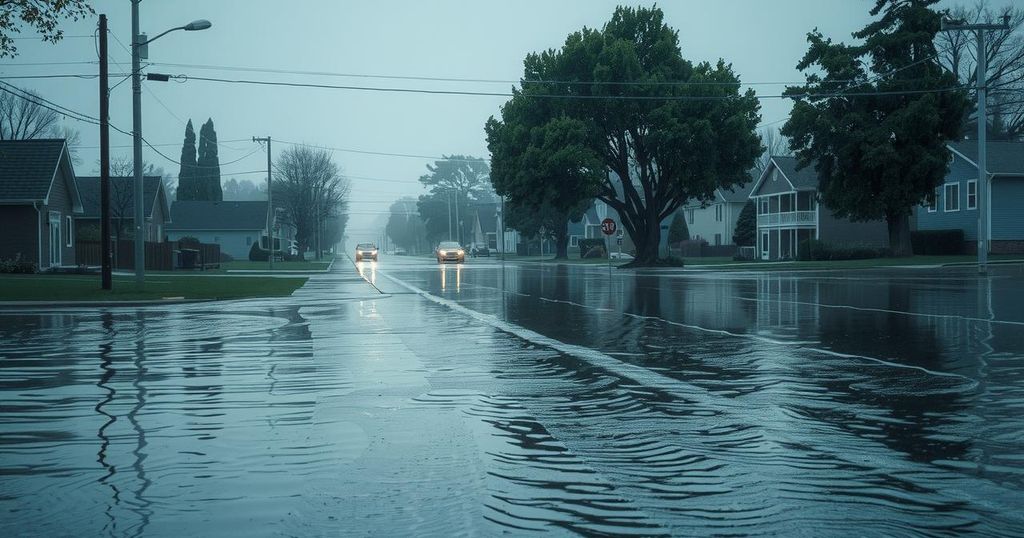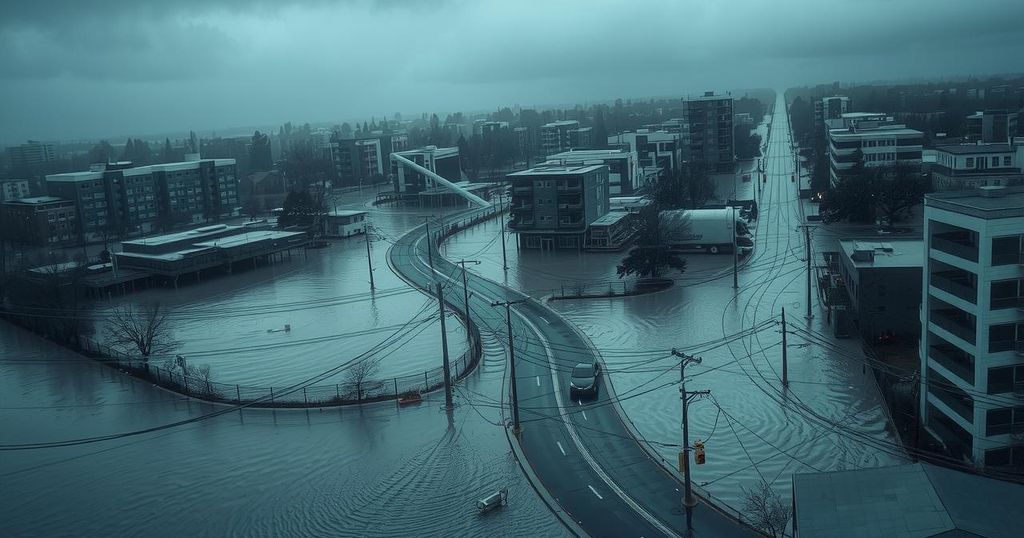UNICEF Reports 250 Million Children Affected by Extreme Weather Disruptions
UNICEF highlighted that nearly 242 million children missed school last year due to extreme weather, with low-income nations severely affected. The findings indicate that heatwaves were the primary climate hazard disrupting schooling. With severe weather impacting diverse regions, especially in 2024, educational systems face substantial challenges to adapt to these worsening conditions.
The United Nations Children’s Fund (UNICEF) reported that approximately 242 million children in 85 countries experienced interruptions in their education last year due to extreme weather events such as heatwaves, cyclones, and flooding. This statistic indicates that one in seven school-going children globally was affected by climate-related hazards at some point during 2024. The most severely impacted were low-income nations in Asia and sub-Saharan Africa, where hundreds of schools were reportedly destroyed.
In southern Europe, disastrous weather events also inflicted severe disruptions, with over 900,000 children in Italy affected by torrential rains and flooding. In Spain, thousands of students experienced halted classes due to catastrophic flooding, demonstrating that extreme weather impacts reached beyond traditionally vulnerable regions. Heatwaves emerged as the predominant threat, as the earth logged its hottest year on record.
UNICEF noted that in April alone, more than 118 million children faced educational interruptions in regions such as the Middle East and Asia. A significant week-long heatwave elevated temperatures beyond 40 degrees Celsius (104 degrees Fahrenheit) in areas including Gaza and the Philippines, highlighting the perilous nature of climate change for children.
Catherine Russell, UNICEF’s executive director, emphasized the heightened vulnerability of children to weather-related crises. She explained that children experience physical challenges during heat exposure, making it difficult for them to focus in classrooms lacking adequate cooling. Disruptions to their education also occur when their school routes are flooded or when schools sustain damage from severe weather.
The report emphasizes that around 74% of the affected children are from middle- and low-income countries, illustrating the devastating effects of climate extremes on impoverished regions. Countries like Pakistan lost over 400 schools to flooding, while Afghanistan dealt with simultaneous heatwaves and severe flooding that damaged more than 110 schools in a single month.
El Niño exacerbated conditions in southern Africa, contributing to prolonged droughts that threatened education for millions of children. Recent events, such as Cyclone Chido in the Indian Ocean territory of Mayotte, have furthered disruption, leaving children out of school in subsequent weather crises. Likewise, Cyclone Chido destroyed more than 330 schools in Mozambique, where access to education is already critically limited.
UNICEF remarked that the current global education systems are ill-equipped to manage the repercussions of extreme weather, emphasizing the urgent need for measures to protect children’s education amidst escalating climate challenges.
The adverse impact of extreme weather on children’s education poses a significant global challenge. In 2024, a variety of climate hazards disrupted the schooling of millions, particularly affecting low-income countries. These countries frequently face multiple natural disasters that undermine children’s education, exacerbating existing vulnerabilities. The ongoing trends reveal the importance of providing robust educational infrastructure capable of withstanding extreme weather conditions, particularly for the world’s most vulnerable populations.
In conclusion, UNICEF’s report underscores the alarming frequency at which extreme weather affects children’s education worldwide, particularly in low-income countries. The study reveals that millions are deprived of schooling due to climate disruptions, with substantial damage inflicted on school infrastructures. Urgent measures are required to build resilience in educational systems, protecting children’s right to education amidst increasingly severe climate phenomena.
Original Source: www.pbs.org




Post Comment